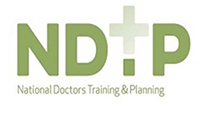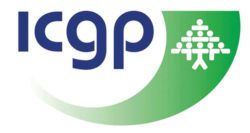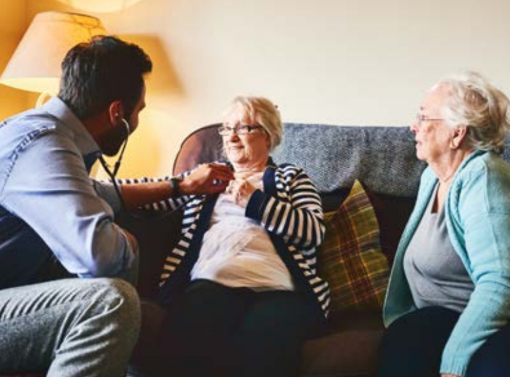Are you thinking about a career in General Practice?
General Practice offers you a rewarding and fulfilling career, a life with you in control, with vast opportunities to specialise in the area of medicine you want to follow. A life with the support of your colleagues, and the time to spend with your family and friends.
It’s never been a better time to become a GP in Ireland. GPs have even more scope to specialise, expand and define their role in the community and at the heart of the Irish healthcare services.
GP STORIES
WHY BE A GP?
Make a Real Difference
- Be a GP and make a genuine difference to the lives of people and communities.
- Watch your patients grow and recover, adapt and change.
- Be part of a team that makes a difference to an individual by listening, helping and being passionate about their care and their lives.
- Enjoy the diversity.
- Be a listener.
- Be a problem-solver.
Enjoy a Balanced Life
- Be a GP and control your hours, define your day.
- Protect your time to learn and work to live, not live to work.
- Enjoy a life with independence and flexibility.
- Have a family-centred lifestyle, in the heart of your community.
Be a Generalist and a Specialist
- Be a GP and be a diagnostic powerhouse, challenged by every patient who walks through your door.
- In any one day, diagnose a wide variety of conditions, from heart disease to depression, minor surgery and paediatrics – helping patients with all medical presentations.
- Partake in lifelong learning, with CME, supportive professional networks and opportunities to develop special interests.
Make a Real Difference
- Be a GP and make a genuine difference to the lives of people and communities.
- Watch your patients grow and recover, adapt and change.
- Be part of a team that makes a difference to an individual by listening, helping and being passionate about their care and their lives.
- Enjoy the diversity.
- Be a listener.
- Be a problem-solver.
Enjoy a Balanced Life
- Be a GP and control your hours, define your day.
- Protect your time to learn and work to live, not live to work.
- Enjoy a life with independence and flexibility.
- Have a family-centred lifestyle, in the heart of your community.
Be a Generalist and a Specialist
- Be a GP and be a diagnostic powerhouse, challenged by every patient who walks through your door.
- In any one day, diagnose a wide variety of conditions, from heart disease to depression, minor surgery and paediatrics – helping patients with all medical presentations.
- Partake in lifelong learning, with CME, supportive professional networks and opportunities to develop special interests.
KEY DATES
2024 GP Trainee Recruitment Process
2024
| Monday 2nd October (2pm) |
Application (Part A) opens online. Applicants are required to complete a brief application form and pay a non-refundable application fee of €75. All applicants will be invited to sit the SJT & CPST test. |
| Thursday 5th October (6pm) | Application & Information Webinar |
| Monday 23rd October (10am) | Application (Part A) closes. |
| Thursday 26th October (10am – 10pm) |
Situational Judgment Test (SJT) and Clinical Problem-Solving Test (CPST) The test window is 12 hours. Applicants are required to undertake both tests in the same sitting and are advised to allow a minimum of 3 hours to complete the tests in full. |
| Monday 20th November | Notification of SJT & CPST outcome |
| Monday 20th November | Application (Part B) opens online |
| Monday, 4th December (10am) |
Application (Part B) closes online |
| Monday 18th December | Notification to applicants that do not meet the eligibility criteria |
| Monday 18th December | Notification to applicants that meet the eligibility criteria and platform open to upload references and complete the interview consent & validation process. |
| Monday 8th January 2024 | Platform for reference upload closes |
| Wednesday 7th & Thursday 8th February | Online Interviews |
If you have specific queries regarding GP trainee recruitment, please email – [email protected]
2024
| Monday 2nd October (2pm) |
Application (Part A) opens online. Applicants are required to complete a brief application form and pay a non-refundable application fee of €75. All applicants will be invited to sit the SJT & CPST test. |
| Thursday 5th October (6pm) | Application & Information Webinar |
| Monday 23rd October (10am) | Application (Part A) closes. |
| Thursday 26th October (10am – 10pm) |
Situational Judgment Test (SJT) and Clinical Problem-Solving Test (CPST) The test window is 12 hours. Applicants are required to undertake both tests in the same sitting and are advised to allow a minimum of 3 hours to complete the tests in full. |
| Wednesday 15th November (11am) | Notification of SJT & CPST outcome |
| Wednesday 15th November (2pm) | Application (Part B) opens online |
| Wednesday, 29 November (5pm) | Application (Part B) closes online |
| Monday 18th December | Notification to applicants that do not meet the eligibility criteria |
| Monday 18th December | Notification to applicants that meet the eligibility criteria and platform open to upload references and complete the interview consent & validation process. |
| Monday 8th January 2024 | Platform for reference upload closes |
| Wednesday 7th & Thursday 8th | Online Interviews |
If you have specific queries regarding GP trainee recruitment, please email – [email protected]
FAQs
How can I train to be a GP in Ireland?
The Irish College of General Practitioners (www.icgp.ie) is the professional and training body for Irish general practice. Specialist training for general practice aims to produce GPs who, on completion of training, will be able to provide personal and continuing care to individuals and families in the community.
General practice training is in the main four years in duration. The first two years are spent primarily in hospital settings, with third and fourth year in supervised general practice.
For those undertaking the recognition of prior learning (RPL) pathway, general practice training is shortened from 4 years to 3 years.
How can I find out more information on GP Training in Ireland?
Learn more about GP training in Ireland
What are the dates for the application process?
Key dates for the 2024 process are now available
How does the application process work?
 Application: Online application (Part A) opens early October to allow applicants to apply for the Situational Judgement Test (SJT) & Clinical Problem-Solving Test (CPST). Applicants complete a brief application form, pay a non-refundable application fee.
Application: Online application (Part A) opens early October to allow applicants to apply for the Situational Judgement Test (SJT) & Clinical Problem-Solving Test (CPST). Applicants complete a brief application form, pay a non-refundable application fee.
 SJT & CPST: The online SJT & CPST test window will be open from 10am
SJT & CPST: The online SJT & CPST test window will be open from 10am
– 10pm on Thursday 26th October. Applicants will be required to undertake the test in one sitting and will be required to set aside approximately 3 hours to complete the test. Full details on the test will be issued to applicants in advance of the test date.
Successful SJT & CPST Applicants that meet the minimum requirements in both tests will be required to complete Part B of the application form.
Unsuccessful SJT & CPST Applicants that do not meet the minimum requirements in both these will not proceed further in the 2024 recruitment process.
 Application Form & Eligibility (Application Part B): Applicants successful in step 2 (above) will be required to complete part B of the application form. This requires applicants to provide evidence of meeting the HSE & IMC eligibility criteria, details of previous hospital experience, qualifications, referee details and apply for Recognition of Prior Learning (RPL), if applicable. Applications are reviewed to ensure the appropriate supporting documentation confirming that requirements for HSE English language competency and eligibility for the trainee specialist register are met.
Application Form & Eligibility (Application Part B): Applicants successful in step 2 (above) will be required to complete part B of the application form. This requires applicants to provide evidence of meeting the HSE & IMC eligibility criteria, details of previous hospital experience, qualifications, referee details and apply for Recognition of Prior Learning (RPL), if applicable. Applications are reviewed to ensure the appropriate supporting documentation confirming that requirements for HSE English language competency and eligibility for the trainee specialist register are met.
 Shortlisting: Shortlisting is based on performance at SJT and CPST tests and on applicants having completed a minimum of nine months clinical experience. The clinical experience must be paid full time (or equivalent), postgraduate acute hospital based, either as an intern or SHO by the time of starting GP training in July 2024.
Shortlisting: Shortlisting is based on performance at SJT and CPST tests and on applicants having completed a minimum of nine months clinical experience. The clinical experience must be paid full time (or equivalent), postgraduate acute hospital based, either as an intern or SHO by the time of starting GP training in July 2024.
 Reference Upload and Interview Consent: Candidates invited to interview are required to complete an online validation and consent process prior to interview. This includes uploading BST references x 2, ID and declaration form.
Reference Upload and Interview Consent: Candidates invited to interview are required to complete an online validation and consent process prior to interview. This includes uploading BST references x 2, ID and declaration form.
 Interview: Interviews will be held online on Wednesday 7th & Thursday 8th February 2024. Candidates will be randomly allocated to interview panels and will be assessed on a number of core competencies.
Interview: Interviews will be held online on Wednesday 7th & Thursday 8th February 2024. Candidates will be randomly allocated to interview panels and will be assessed on a number of core competencies.
 Scheme Selection: Following the interview, candidates deemed appointable will be required to select training scheme preferences (online).
Scheme Selection: Following the interview, candidates deemed appointable will be required to select training scheme preferences (online).
 Rank and Match: A rank and match is undertaken, taking into account the number of available places on schemes, HSE national policy on the allocation of training places, and candidates’ total overall score and training scheme preferences.
Rank and Match: A rank and match is undertaken, taking into account the number of available places on schemes, HSE national policy on the allocation of training places, and candidates’ total overall score and training scheme preferences.
 Offers: Offers are made in rank order in accordance with the national allocation policy. A candidate may either accept the offer, reject it or withdraw from the process.
Offers: Offers are made in rank order in accordance with the national allocation policy. A candidate may either accept the offer, reject it or withdraw from the process.
What documents do I need to submit with my application?
Application Form Part A
Applicants are not required to submit any supporting documentation with Application Form Part A. The following information will be required:
-
- Name
- Email address
- Postal address
- Country of citizenship
- Stamp 4 Holder – Yes, No, In process
- Irish Medical Council (IMC) registration number (if you do not have an IMC number this can be left blank)
- Type of Irish IMC registration (‘Internship Registration’, ’Specialist Division’, ‘Trainee Division’, ‘General Division’) If you do not have an IMC registration this can be left blank.
- Country of Graduation
- Entry level to medical school (Graduate Entry or Undergraduate)
- I am a CAO/HEA graduate* of Irish Medical School (Yes/ No) A CAO/HEA Graduate is defined as a trainee who was entitled to free fees in an Irish Medical School and who accessed the programme through the CAO process. Any student who was required to pay fees to access their degree is not considered a CAO/HEA Graduate.
- Current post (Intern (Ireland), SHO or Equivalent, Registrar, Consultant, FY1/FY2 (UK), General Practitioner, not currently working, Other (Free text))
- Current interns must insert their expected internship completion date: DD/MM/YYYY and Medical School (TCD, UCD, RCSI, UL, UCC, NUIG, Other (free text))
All applicants will be required to consent to the Terms and Conditions of application and to pay a non-refundable application fee of €75.
Application Form Part B
Applicants that meet the minimum standard in the Situational Judgement Test (SJT) and the Clinical Problem Solving Test (CPST) will be required to completed application form Part B.
The documentation listed below with * are mandatory, all others are optional and may be reviewed by schemes, if the application is successful.
- Evidence of eligibility for the trainee specialist register with the Irish Medical Council*
- Evidence of meeting HSE English language competency requirements*
- Medical Council Registration Certificate
- Passport sized photo*
- A colour scanned copy of passport*
- Membership/Fellowship Certificates
- Medical Degree*
- Stamp4 Card (if applicable)
Applicants are advised to review the Guide to Applicants.
Who is eligible to apply for the scheme?
Doctors that can provide evidence at application stage of meeting the criteria for trainee specialist registration with the IMC and the HSE English language requirements are eligible to apply for GP training.
Where are the training schemes based and what GP practices are involved?
For the 2024 intake of GP trainees, applicants will select from 13 schemes across 4 regions
Dublin North Leinster Region
- North Dublin City Scheme
- North East Scheme
- RCSI Scheme
Dublin South Leinster Region
- Midlands Scheme
- TCD Scheme
- UCD DML Scheme
South Region
- Cork Scheme
- South East Scheme
- South West Scheme
West Region
- Donegal Scheme
- Sligo Scheme
- Western Scheme
Further information on the schemes can be found in the National Specialist Training Programme in General Practice
Can I choose where I will complete my training?
After interview candidates that have been deemed appointable for GP training will be asked to rank their preferred training schemes (online process). Applicants are only asked to select the training scheme they are genuinely interested in. Further details on this will be made available to candidates later in the recruitment process.
Can I get credit if I have completed Basic Specialist Training in another training body?
Medicine and Paediatrics
Applicants that have successfully completed BST in Medicine or Paediatrics from the RCPI and who have successful completed relevant MRCPI examinations (Part I & Part II), by commencement stage (July 2024) can apply for Recognition of Prior Learning.
Emergency Medicine
Applicants that have successfully completed core specialist training in Emergency Medicine from the RCSI and who have successful completed all appropriate assessments (MRCEM Primary, MRCEM Intermediate SBA and MRCEM OSCE), by commencement stage (July 2024) can apply for Recognition of Prior Learning.
Successful applicants will have training shortened from 4 years to 3 years.
Successful applicants for RPL Paediatrics will have training shortened from 4 years to 3 years. Please note, the length of exemption is defined by the length of Pediatric rotation usually offered by individual schemes.
View further information on Recognition of Prior Learning (RPL)
Where can I go for more details?
For more information on becoming a GP please visit ICGP.ie


BLOG POSTS

Pathways to General Practice – Blog by Dr. Derek Casey
My name is Derek Casey and I’m a 36 year old GP Principal at Cappoquin Health Centre in County Waterford. I graduated from the South East Training Scheme in July 2020. I decided around half way through final year on the Scheme that I wanted to work for myself and take...
Get In Touch
Start building your future now
Contact Us to…
- Get information on the 2024 GP Trainee recruitment process
- Receive information about the ICGP’s Application & Information Session
- Receive information on the Recognition of Prior Learning (RPL) process.
The ICGP, 4/5 Lincoln Place,
Dublin 2, Ireland.
CRN: 2001 3202




